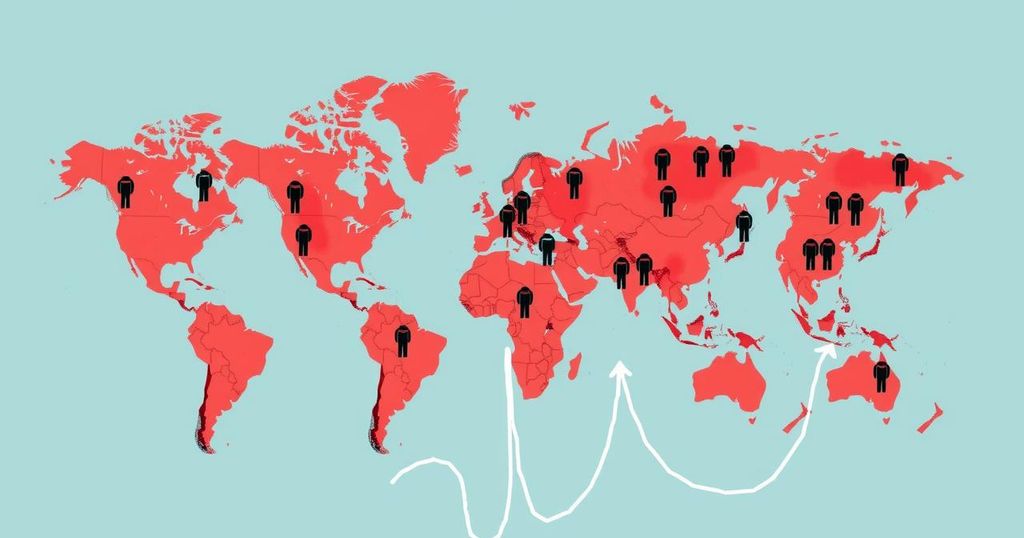Impact of Misinformation and Foreign Influence on 2024 Elections
In 2024, approximately 3.7 billion individuals voted worldwide, amidst rising concerns over misinformation and foreign influence in elections. Various significant incidents highlighted the vulnerabilities of electoral processes, especially concerning AI and manipulated campaigns, while the integrity of ballots in countries such as Romania and Moldova came under scrutiny. Despite assurances from tech giants about limited impacts, the year revealed persistent threats to democracy that require urgent attention.
The year 2024 saw an unprecedented voter turnout worldwide, defined as a ‘super year’ for elections, with an estimated 3.7 billion eligible voters across over 70 countries. Critical elections in populous democracies such as the United States, India, and Indonesia were juxtaposed against turbulent ballots in authoritarian states like Belarus, Iran, and Russia. However, this significant engagement was overshadowed by the growing concern over misinformation, foreign interference, and the role of generative AI in shaping electoral outcomes. Despite reassurances from major social platforms like Meta, which indicated the limited impact of AI-related threats, several incidents throughout the year illuminated the vulnerability of electoral processes to manipulation.
One prominent incident occurred in Romania, where the Constitutional Court annulled the preliminary results of the presidential election due to revelations from declassified intelligence implicating a state actor in a disinformation campaign favoring candidate Calin Georgescu. Similarly, misinformation campaigns were evident in the European parliamentary elections, where EU-related disinformation reached alarming levels prior to voting, although overall voting proceeded without major incidents. In Pakistan, former Prime Minister Imran Khan controversially utilized AI to broadcast an address to voters during his electoral campaign, despite being imprisoned.
Additional challenges arose in Moldova, where a tight referendum on EU membership was complicated by accusations of foreign funding aimed at influencing voter behavior. In the United States, bomb threats on election day intensified the chaotic backdrop of the presidential ballots, with investigations tracing some false alerts to Russian email domains. The overarching narrative of 2024 highlighted an ongoing battle against misinformation and foreign influence in democracies, raising critical questions about the integrity and security of electoral processes globally.
The global elections of 2024 marked a significant moment in democratic engagement, attracting the attention of billions of eligible voters amid concerns over misinformation and foreign manipulation. This year witnessed several high-stakes elections where the very fabric of democracy was tested through innovative yet controversial tactics, including the utilization of artificial intelligence. Experts and organizations alike raised alarms about the integrity of electoral processes, prompting a reevaluation of safeguards against perceived threats to democracy.
The events of 2024 underscore the imperative for democracies to fortify themselves against misinformation, foreign interference, and the evolving landscape of digital threats. The varied responses to disinformation campaigns across nations reveal a crucial need for vigilance and effective strategies to preserve electoral integrity. As democracies adapt to these challenges, the lessons learned from 2024 will undoubtedly shape future electoral safeguards and policies.
Original Source: www.euronews.com




Post Comment